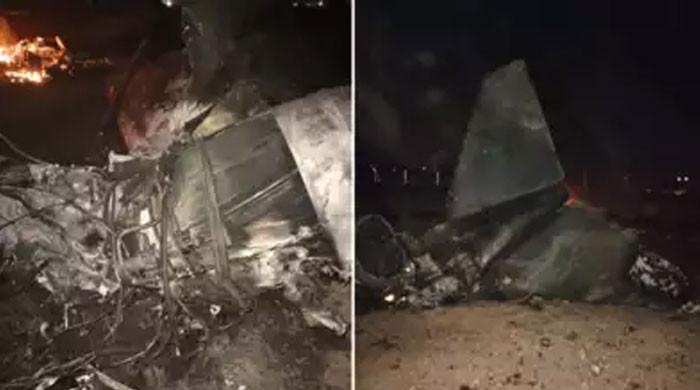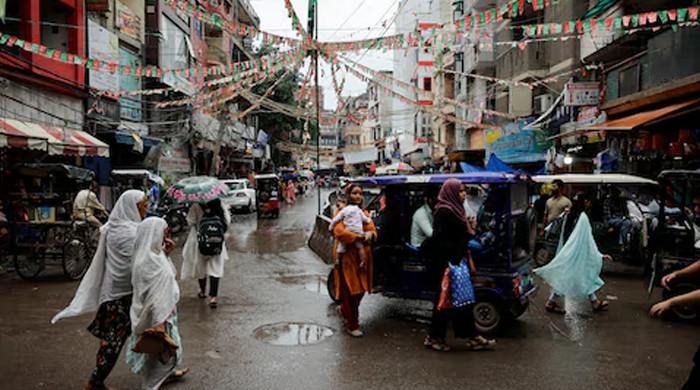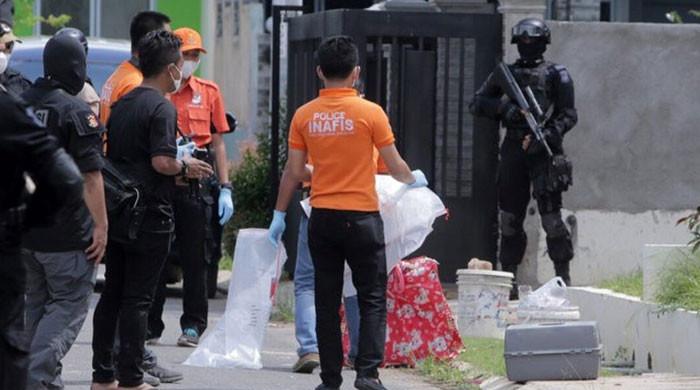Israel-Hamas war: Tanks, troops blast into Gaza to make first ground raids
Israel's bombings have martyred over 1,800 Palestinians hundreds of which include children
October 14, 2023
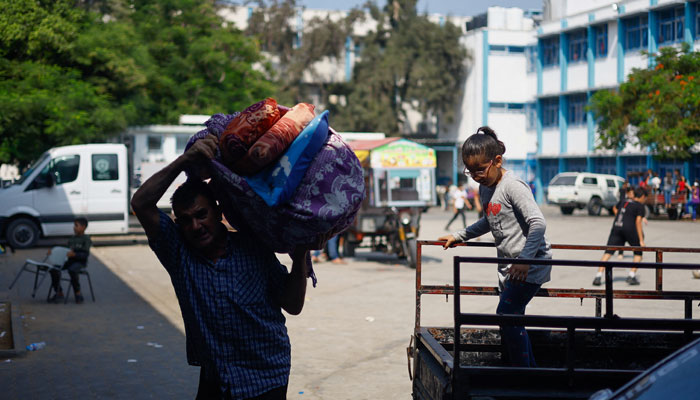
- UN warns of "devastating humanitarian consequences" of relocation.
- Hamas says relocation warning is fake propaganda.
- At least 1,500 Palestinians have been martyred by Israel so far.
In a significant development on Friday, the Israeli military said that its ground forces, accompanied by tanks, conducted ground raids within the Gaza Strip — marking a transition from an aerial campaign to ground operations.
This transition is aimed at eliminating Hamas fighters following their deadly incursion into southern Israel.
Rear Admiral Daniel Hagari, an Israeli military spokesperson, stated that these ground operations were launched with the objectives of targeting Palestinian rocket crews and gathering vital intelligence regarding the whereabouts of hostages held by Hamas.
Hamas, which governs the densely populated Palestinian territory, has remained steadfast in its determination to resist. As a result of these actions, a notable number of Gazans have begun moving southward, ostensibly in an attempt to ensure their own safety.
Thousands of Palestinians rushed to the southern Gaza region in search of refuge following Israel's warning to evacuate before an anticipated ground offensive against Hamas in response to the deadliest attack in Israel's history.
Earlier, the United Nations had told Reuters about the Israeli military's warning, which, as feared by Palestinians, could result in Israel's planned ground offensive.
Israel's call for evacuation came six days after Hamas militants breached the heavily fortified border around the Gaza Strip, resulting in more than 1,300 casualties, primarily civilians. This attack was likened to 9/11 in the United States.
Civilian toll and hostages
Nearly 1,800 Gazans, the majority of whom were civilians, including over 580 children, have been killed in waves of missile strikes on the densely populated enclave.
Hamas, recognized as a terrorist organization by the United States and Europe, took approximately 150 Israeli, foreign, and dual-national hostages back to Gaza during its initial attack.
The militant group claimed that 13 hostages had been killed in Israeli air strikes, with an additional four reportedly dead due to bombardments, which could complicate any Israeli ground offensive.
International response
Germany's Foreign Minister Annalena Baerbock, during a visit to Jerusalem, accused Hamas of using residents as "shields." Tensions escalated across the Middle East and beyond, with protests in support of the Palestinians, while Israel faced the threat of a potential confrontation with Hezbollah in Lebanon.
UN's appeal and humanitarian crisis
The United Nations expressed concerns over Israel's evacuation order, deeming it "impossible" to move approximately 1.1 million people, nearly half of Gaza's population, in such a short timeframe.
Aid agencies warned that mass evacuations would strain resources due to the Israeli blockade, causing shortages of fuel, food, and water. Hospitals were overwhelmed with the dead and wounded, and the health system was already at a "breaking point."
International call for action
Jordan's King Abdullah II called for "humanitarian corridors" to be urgently opened, and various international leaders condemned the ongoing siege and called Israel's evacuation order a "forced transfer" that constitutes a "crime."
Hamas threats
Hamas threatened to kill captives if Israel bombed civilian targets without advance warning.
Potential second front
Israel faced the potential of a second front in the north, with Hezbollah in Lebanon stating it was "fully prepared" to join the war alongside Hamas. Cross-border fire raised concerns about regional stability.
US support
The United States sent additional munitions and its largest aircraft carrier to the region, with President Joe Biden warning other regional powers not to get involved. The Pentagon assured Israel of "iron-clad" US support.
Iran's involvement
Iran, a long-time financial and military backer of Hamas, praised the attack but denied involvement. There were reports of an agreement between US and Qatari officials to prevent Iran from using a $6 billion humanitarian assistance fund following the Hamas attack.
The situation remains highly volatile, with a potential ground offensive by Israel and an escalation of conflict in the region.
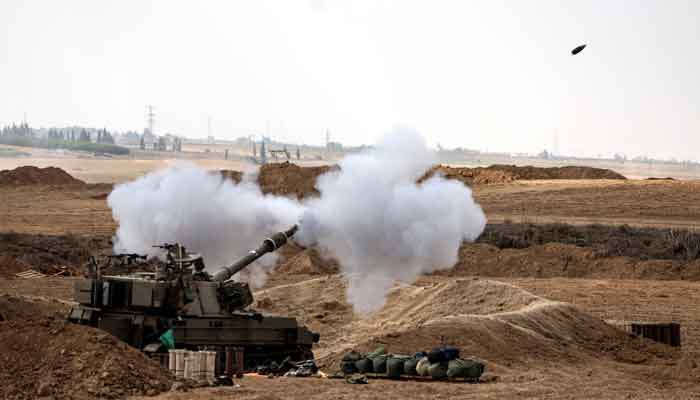
World War II flashbacks
In another development, Russian President Vladimir Putin compared Israel’s blockade of the Gaza Strip to Nazi Germany's siege of Leningrad during World War II and called for a resolution to the conflict to be reached through mediation.
'Fake propaganda'
But appearing to confirm a warning took place, Israel's ambassador to the UN, Gilad Erdan, said: "The UN's response to Israel's early warning to the residents of Gaza is shameful."
Erdan said the UN should focus on condemning Hamas and supporting Israel's right to self-defence.
Salama Marouf, head of the Hamas government media office, said the relocation warning was an attempt by Israel "to broadcast and pass on fake propaganda, aiming to sow confusion among citizens and harm our internal cohesion."
He added: "We urge our citizens not to engage in these attempts".
Food, water running 'dangerously low'
The International Committee of the Red Cross (ICRC) said fuel powering emergency generators at hospitals in Gaza could run out within hours and the United Nations World Food Programme (WFP) warned food and fresh water were running dangerously low.
"The human misery caused by this escalation is abhorrent, and I implore the sides to reduce the suffering of civilians," ICRC regional director Fabrizio Carboni said.
In the wake of Israel's 24-hour ultimatum, Gaza's Health Ministry has informed the World Health Organisation (WHO) that it is impossible to evacuate vulnerable hospital patients from northern Gaza.
The UN Humanitarian Office (OCHA) said more than 400,000 people had fled their homes in Gaza and 23 aid workers had been killed.
So far, Israel's bombings have martyred over 1,500 Palestinians hundreds of which include children, Gaza authorities said. The Israeli forces have also killed four medics, which the Palestinian Red Crescent claimed were murdered deliberately.
Israel has put Gaza, home to 2.3 million people, under siege and launched a bombing campaign that destroyed whole neighbourhoods.
Pro-Palestinian protests were expected around the world and the United States and regional leaders planned meetings amid fears that conflict could spread.
— Additional input by Reuters




